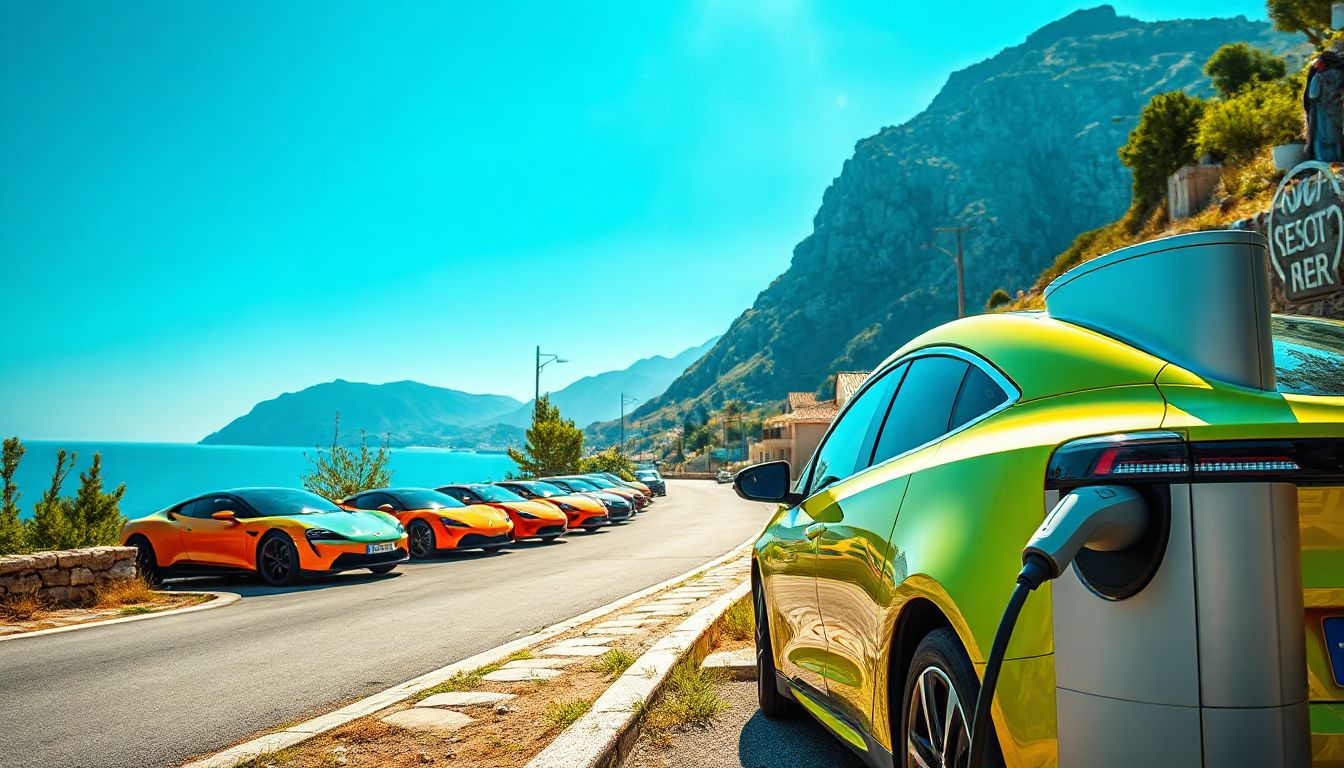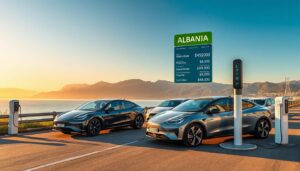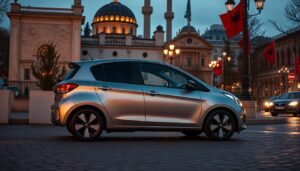Introduction
The world is moving fast toward electric cars. Countries everywhere see EVs as a way to cut pollution and protect our planet. Albania, with its growing cities and scenic landscapes, is also joining this green movement. Many are now wondering: can EVs help Albania breathe cleaner air and become more energy independent? The answer is yes. Switching to electric vehicles offers big benefits for the environment, economy, and everyday life. It can help Albania become cleaner, save money, and create new jobs.
The State of Electric Vehicles in Albania
Current EV Market and Adoption Rates
In recent years, Albania has seen more electric cars on its streets. Although EVs still make up a small part of total vehicles, the number is rising. Many locals are choosing electric cars for daily use. Compared to neighboring countries like North Macedonia or Montenegro, Albania’s EV scene is still young but growing fast. Across Europe, countries like Norway lead with high EV adoption and set examples Albania can follow.
Government Policies and Incentives
Albania is starting to support electric cars through new policies. These include lower taxes for EV buyers and some subsidies. Although the government’s efforts are just beginning, they show a strong intention to encourage EV use. Plans include reducing registration fees for electric cars and offering special perks for early adopters. These measures aim to make EVs easier and cheaper for locals.
Challenges Facing EV Adoption in Albania
Despite the positive signs, Albania faces hurdles. One challenge is the lack of enough charging stations. Today, drivers often worry about running out of power. Maintenance services for EVs are also limited. Additionally, many Albanians are unfamiliar with EV technology or hold misconceptions about their reliability. Economic factors like car prices and lack of financing also slow down wider adoption.
Infrastructure Development and Charging Networks
Existing Electric Vehicle Charging Stations
Major cities like Tirana, Durrës, and Vlorë have started building charging points. There are around 30 stations now, mostly located in city centers. Still, rural areas and smaller towns lack reliable charging options. Expanding this network is crucial for making long trips possible with EVs.
Plans for Expanding Charging Networks
Both public and private sectors are working on new charging stations nationwide. New projects include installing fast chargers along main roads to ease travel. Albania also aims to power stations using renewable energy, like solar or wind, making charging truly green. These steps will help drivers feel confident about traveling long distances without worry.
Tips for EV Owners and Future Buyers
- Plan your trips using apps that show charging station locations.
- Keep your battery charged before long drives.
- Avoid frequent full charges or deep discharges for better battery health.
- Store your EV in cool places to extend battery life.
- Maintain your EV regularly to ensure reliability and longevity.
Environmental and Economic Benefits of EVs in Albania
Reducing Carbon Footprint and Air Pollution
EVs produce no tailpipe emissions, which means cleaner air inside cities. Data shows that increasing EV use can cut harmful gases by up to 50% in urban areas. This reduces health problems like asthma and lung diseases caused by pollution. Cleaner air benefits everyone and makes cities more walkable.
Supporting Albania’s Renewable Energy Goals
Electric cars fit perfectly with Albania’s push for renewable energy. Solar and wind power can produce cleaner electricity for charging stations. In the future, solar panels on buildings could directly charge EVs, making transportation entirely green.
Economic Advantages
Switching to EVs can save money in the long run. They cost less to fuel and maintain than gas-powered cars. Jobs are also coming — from assembling EV parts to building charging stations. Small businesses and startups see new opportunities in EV services, creating a stronger local economy.
Consumer Perspectives and Market Trends
Public Perception and Awareness
Many Albanians are curious but still skeptical about EVs. Some think electric cars are too expensive or unreliable. Surveys show that people need more information about how EVs work and their benefits. Spreading awareness can help change minds and boost sales.
Trends and Future Outlook
Experts believe EV sales in Albania will grow steadily over the next few years. New policies and international support will give a boost. Countries like Germany and Norway already have large EV markets, and Albania is starting to follow suit.
Actionable Tips for Buyers
- Think about your daily driving needs before choosing a model.
- Compare EV ranges if you often take long trips.
- Look for government incentives or subsidies that reduce costs.
- Consider leasing or financing options to lower upfront expenses.
- Calculate the total cost of ownership, including maintenance and charging.
Regional and International Influences
Collaboration with European Countries
Albania benefits from agreements with the EU for green transportation. Funding and guidelines help build charging networks and promote EV use. Cross-border initiatives allow easier travel between Albania and neighboring countries, making EV adoption more practical.
Case Studies of Successful EV Adoption
Countries like Norway and Germany show what’s possible. Norway’s extensive charging network and supportive policies turned EVs into common cars. Albania can learn from these examples by investing in infrastructure and promoting public awareness.
Conclusion
Albania stands at a turning point for electric vehicles. Today, the market is small but growing fast. Challenges like charging infrastructure and public awareness remain, but opportunities are enormous. With government support, new investments, and smarter choices, EVs can help Albania breathe cleaner air, create jobs, and use energy more wisely. Everyone has a role — from policymakers to consumers — in building a greener future. The future is electric, and Albania has the potential to lead in Southeast Europe. It’s time to embrace this change and drive toward a healthier, more sustainable tomorrow.




